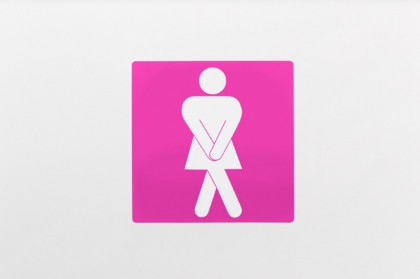
It’s suffered by a third of women who’ve had babies – and even one in eight who haven’t – yet because incontinence is not a problem people like to talk about, many are putting up with something that can be fixed.
With the start of Continence Week tomorrow, Dr Margaret Sherburn, head of physiotherapy at the Royal Women’s Hospital, Melbourne, is wondering what would happen if a high-profile celebrity went on the public record as suffering what’s been commercially termed “LBL” (light bladder leakage).
“There’s such a stigma attached to this issue which isn’t helping encourage people to seek help,” she says. “And if there is any publicity around it, it tends to suggest that incontinence is something you just live with.
“But any leakage is not normal and should not be ignored. It’s a medical problem which can be treated,” she says.
Most cases can be fixed
According to the Continence Foundation of Australia (CFA), an estimated 70 per cent of people living with incontinence do not discuss the issue, even with their GP, despite studies showing most cases can be cured or better managed.
The general consensus has been that bladder leakage is only a problem for middle-aged women who’ve had a few babies, or those pastmenopause. But recent Australian research from Monash University has confirmed that more than 12 per cent of women aged 16 to 30 who have never been pregnant have incontinence.
For about half the problem was stress incontinence – accidentally leaking urine when coughing or sneezing or during exercise – while more than a third had urge incontinence, which is the need to suddenly go to the loo but not getting there in time.
It seemed that having ever had sex increased the risk of a woman becoming incontinent; however, among those people, taking the oral contraceptive pill appeared to reduce the chance of leakage by 50 per cent.
Sherburn says the study found that leakage issues were significantly impacting on the lives of at least half the women, limiting them socially and causing stress.
“If they would talk to a professional they would find that their issues could be treated,” she says.
“I was mortified by my LBL”
Kell Kelly was just 22 when she noticed leakage when she coughed or sneezed.
“Suffering from light bladder leakage (LBL) is something that nobody wants to experience, let alone discuss with anyone. I was six months pregnant when I had my first encounter.
I was mortified. Not only was I beyond humiliated, I was terrified that I couldn’t reverse the damage done. Would I have to deal with this embarrassing secret for the rest of my life?
I didn’t mention my ‘mishaps’ to anyone, not even my husband. But now I know you don’t have to accept LBL. You can strengthen your muscles by giving your pelvic floor the workout of its life and go back to living life to its fullest.”
Source: bodyandSoul
 We are sharing information for knowledge. Presented by. SocialDiary.Net
We are sharing information for knowledge. Presented by. SocialDiary.Net



